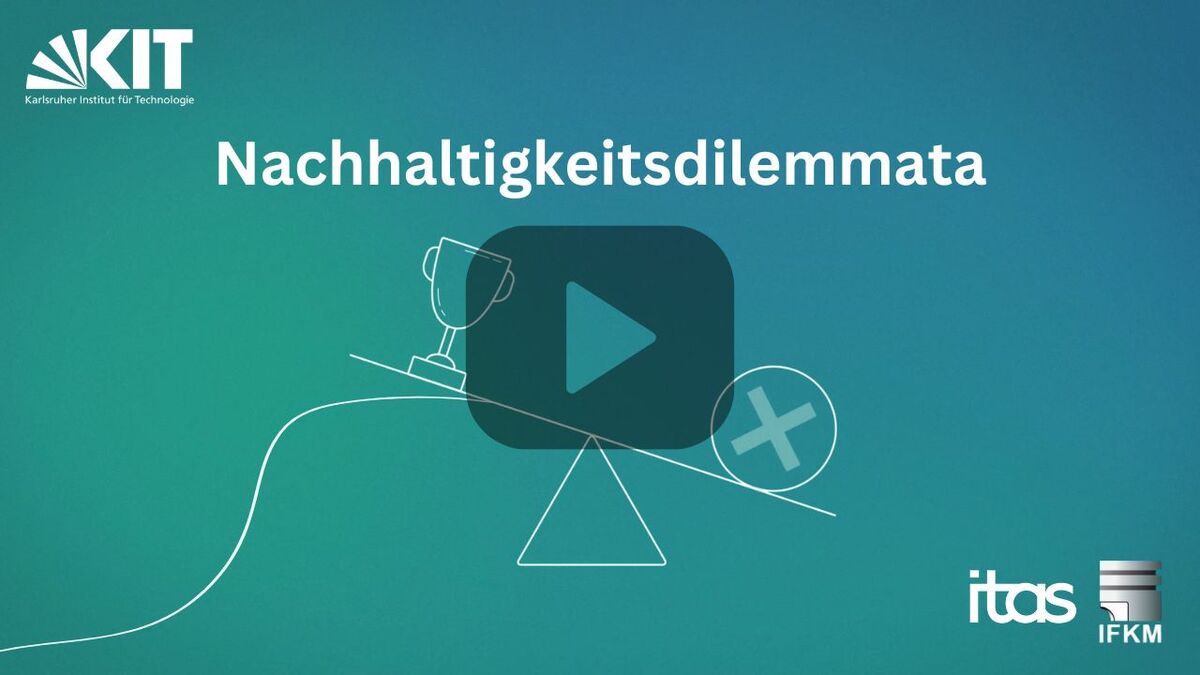Sustainability: Project introduces new skills to engineering studies
“Due to the high complexity of the technologies, engineering studies are mostly geared toward the development and optimization of technological solutions. And at work, it is often more about robustness and cost optimization,” explains Dirk Scheer, a social scientist at ITAS who deals with topics at the interface between technology, business, and society. According to Scheer, the methodological tools for sustainable product development are usually not an integral part of the training, but students build them up out of their own interest at best.
This is where a team led by Dirk Scheer and Olaf Toedter from the KIT Institut für Kolbenmaschinen (IFKM, Institute for Piston Machines) came in. In the NaProIng project funded by the Deutsche Bundesstiftung Umwelt (DBU, German Federal Environmental Foundation), researchers have developed tools to build key competences for sustainable product development during the course of study.
Five educational videos on different facets of the topic
One of the project’s key results is a total of five educational videos on selected aspects of sustainability, which are available on the YouTube channel “KIT Lehre und Wissen” (KIT Teaching and Knowledge, only in German). They provide a general introduction to the “Umbrella Concept of Sustainability”, present the basics of sustainable materials and product development, introduce sustainability assessment, and demonstrate how to deal with sustainability dilemmas in which different aspects of sustainability have to be weighed up against each other.
The videos – all of them also available as transcripts – are designed in such a way that they can be seamlessly integrated into existing lectures. “In this way, we want to support lecturers within and outside KIT in adding key sustainability aspects to their courses in the future,” says Dirk Scheer. (18.09.2024)
Further links:
- NaProIng videos on YouTube and in the KIT library's media portal
- Project description ESD for 2030: Teaching tools and and key competencies for sustainable product development for engineers (NaProIng) with slide sets and transcripts of the video


